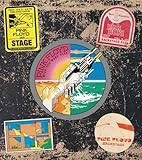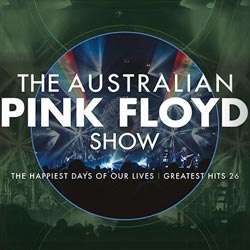David Gilmour der Psychedelic Zauberer
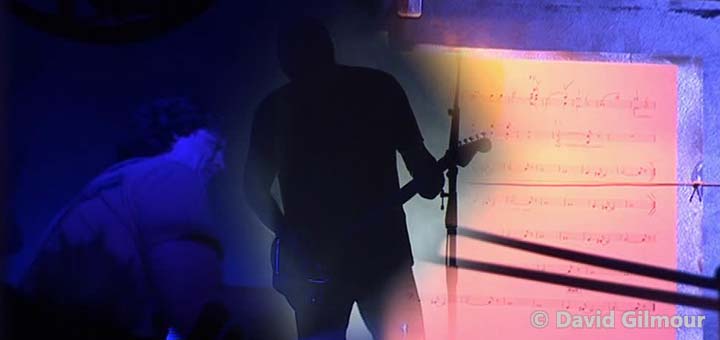
14.12.2008: Neue Interviews von David Gilmour sind zuletzt im Guitar World, Guitar & Bass erschienen. Nun ist ein weiteres interessantes Interview im Guitar Player Magazin veröffentlicht worden.
Die Fragen sind zum teil sehr spezifisch über Gitarren und Spieltechnik usw. Gilmour gibt Auskunft über viele technische Details. Eine Frage z.B. behandelt das Thema wie er bei “Echoes” den klagenden Sound spielt usw. Das gesamte Interview kann bei Gilmour.com nachgelesen werden, klickt einfach auf das Coverfoto. Auf der Guitar Player.com gibt es Auszüge davon.
How did you select material to play on the tour?
David Gilmour: I actually wrote out pretty much the complete discography of Pink Floyd and myself, and just went through it crossing out numbers that didnt appeal to me for various reasons, but even after whittling it down, the list was still massive. We tried those songs out in rehearsal to see which ones fit well with the band, and in the end we still had more songs than we could play in a single show, so we started rotating them. We also tried to be flexible. For example, we never thought we´d play “On the Turning Away” but we wound up doing it in Venice, without any rehearsal. Poor Steve Di Stanislao and Phil Manzanera had never played that song in their lives and were put on the spot, but they did a fantastically good job. We also did “A Great Day For Freedom” in Gdansk, because apart from being relevant, it had an orchestration by Michael Kamen, which we were able to perform with the orchestra there.
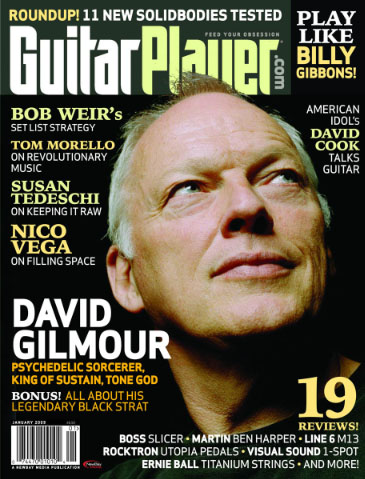
Speaking of orchestrations, how did you go about creating them?
David Gilmour: I had met Zbigniew Preisner and loved his work, and he was very keen to work with me. I knew that I wanted to have an orchestra on some of the songs on the On An Island album from the beginning, such as “A Pocketful of Stones,” “Castellorizon,” and “Red Sky at Night.” And there were some that I hadn’t really thought of putting an orchestra on, but Zbigniew would ring up and say, “I’ve got a lovely little part for this song.” Eventually he said, “I think I should just do something for everything.”
In terms of the actual process, it varied. For example, with “Pocket,” I just played the basic parts on a piano. In fact, I went over to Poland with my wife Polly and we met up in his studio, knocked about an arrangement for a day, and he came up with the chart. In other cases, he already had fairly completed versions of the songs to work with. Sometimes I would give him a line—sing it or play it on the guitar—and he would weave it into an existing orchestration. And some things were just completely his ideas. He made it very easy for me. We then were able to record them together at Abbey Road, and if any part wasn’t quite working right for me, he’d just go out with his rubber and change a few notes right on the score. He’s brilliant, and he did a fantastic job.
Were the live orchestrations the same as on the album?
David Gilmour: Yes.
Do you approach writing solo material in the same way that you did when you were writing music for Pink Floyd?
David Gilmour: I don’t think there’s any conscious difference in the way that I write. The methods of writing—or remembering little pieces of music that I come up—have changed over the years with the technology. But I don’t think there’s any real difference between the Pink Floyd stuff and the recent solo stuff. You could say that my first solo album was a reaction to the time we spent doing Pink Floyd music—more based on just going out and jamming and having some fun—and the second solo album was slightly more consciously trying to get away from Pink Floyd’s sound a little bit. But after that I really had to own up to myself that the Pink Floyd sound is what I do really like. So, when writing the music for On an Island, I was not trying to be either the same as, or different than, Pink Floyd in any way whatsoever. I was able to really just be me for the first time.
You mentioned writing at the piano. Do you have a preference for how you get started on a piece, or is it different each time?
David Gilmour: For the past few years I have had a piano in the house, and acoustic guitars, so a lot more of the stuff is based around those. I think that possibly I should spend a bit more time over in my studio plugging in and thrashing on the electric guitar, to try to get that electric feel to things a little bit more. Maybe we could have done it with a couple of songs that were slightly more up-tempo on the album. Things you write depend on the mood you’re in, and if you spend all your time near pianos and acoustic guitars, it’s going to show [laughs].
Do you write lyrics or music first?
David Gilmour: For me it is very much music first, and the lyrics come along later. Hopefully, the music will inspire a lyric. Most of the lyrics for On an Island were written either by Polly, or the two of us together. For example, when she heard the backing track for “The Blue,” which had a demo vocal on it, it was immediately obvious to her that the song was about the sea. She recognized it instantly, whereas that’s not something that I would have come up with. There’s only one song that I can remember having written words for first, and that was “Sorrow,” on the A Momentary Lapse of Reason album.
Abgesehen von Gilmour wurde auch Phil Taylor befragt. Eine interessante Frage an ihn lautete folgendermaßen:
Stimmt es das Sie an einem umfassenden Buch über Pink Floyds technische Ausrüstung arbeiten?
Phil Taylor: “Ja, es gab Anfragen bezüglich so einem Buch. Aber bis jetzt handelt es sich dabei nur um eine Idee. Ich bin die einzige Person, die über all die Jahre mit Pink Floyd gearbeitet hat und deshalb natürlich eine Menge Wissen darüber hat. Aber nachdem ich mein Black Strat Buch geschrieben habe und weiß wie viel Arbeit das ist, habe ich mich noch nicht entschieden.”
So ein Buch wäre genial! Hoffentlich dann auch mit vielen Konzertfotos!
Info: David Gilmour.com




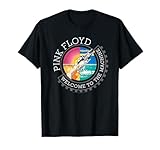
![Wish You Were Here (50th Anniversary) [Vinyl LP]](https://m.media-amazon.com/images/I/41fZFGuVxVL._SL160_.jpg)


![Wish You Were Here/Coloured Vinyl [Vinyl LP]](https://m.media-amazon.com/images/I/41x2vN9YBFL._SL160_.jpg)
![Wish You Were Here (50th Anniv.) Deluxe Box [Vinyl LP]](https://m.media-amazon.com/images/I/41Aitr1IzEL._SL160_.jpg)
![Live At The Circus Maximus [Blu-ray]](https://m.media-amazon.com/images/I/41D-FP1lNNL._SL160_.jpg)
![This Is Not A Drill - Live From Prague [Blu-ray]](https://m.media-amazon.com/images/I/41o7hYNyMxL._SL160_.jpg)

![The Luck and Strange Concerts [Vinyl LP]](https://m.media-amazon.com/images/I/41AMXNvLwgL._SL160_.jpg)
